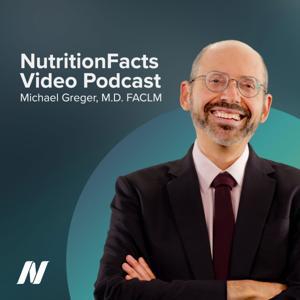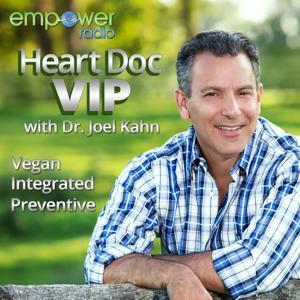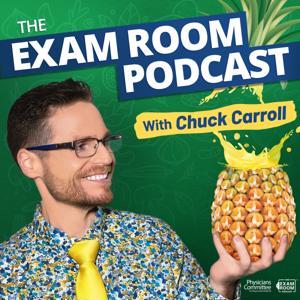Cold plunges are everywhere, and the way people talk about them, you'd think they're a miracle cure for your brain, body, and soul.
But in an age of algorithm-fueled evangelism, when a ritual becomes this ubiquitous and loud, we have to ask: how much of the buzz is backed by science… and how much is just marketing?
In this episode, we explore the neuroscience of cold exposure: what's real, what's overstated, and why this "discomfort" has become a billion-dollar industry.
We discuss:
- Why cold plunges went viral, and how wellness movements often devolve into identity-driven cultures
- The difference between cold exposure itself and the monetized "cold plunge movement"
- What constitutes a "cult" (and how pseudoscience forms around partial truths)
- The real physiological cold shock response
- Why the mental "high" after a plunge doesn't automatically equal long-term brain benefit
- The cardiovascular risks that rarely get discussed, especially for people with underlying heart disease
- What the research suggests about soreness, pain reduction, and muscle growth (including why cold immersion can blunt hypertrophy)
- The real story behind brown fat
- Who should avoid cold plunges altogether (asthma, arrhythmias, coronary disease, vascular conditions)
Joining us for this conversation is investigative journalist and bestselling author Scott Carney (What Doesn't Kill Us, The Wedge), who has spent years inside the cold exposure world, first as a skeptic, then as a believer, and eventually as a critic of the culture that formed around it. His work reveals what happens when discomfort becomes identity, and when unfounded "social media science" outruns real science.
Your Brain On... is hosted by neurologists, scientists, and public health advocates Drs. Ayesha and Dean Sherzai.
SUPPORTED BY: the 2026 NEURO World Retreat. A 5-day journey through science, nature, and community, on the California coastline: neuroworldretreat.com
Your Brain On... Cold Plunges • SEASON 6 • EPISODE 7
REFERENCES
Cold Water Immersion, Muscle Adaptation, and Recovery
Roberts, L. A., Raastad, T., Markworth, J. F., Figueiredo, V. C., Egner, I. M., Shield, A., Cameron-Smith, D., Coombes, J. S., & Peake, J. M. (2015). Post-exercise cold water immersion attenuates acute anabolic signalling and long-term adaptations in muscle to strength training. Journal of Physiology, 593(18), 4285–4301. https://doi.org/10.1113/JP270570
Bleakley, C. M., McDonough, S. M., & MacAuley, D. C. (2004). The use of ice in the treatment of acute soft-tissue injury: A systematic review of randomized controlled trials. American Journal of Sports Medicine, 32(1), 251–261. https://doi.org/10.1177/0363546503260757
Leeder, J., Gissane, C., van Someren, K., Gregson, W., & Howatson, G. (2012). Cold water immersion and recovery from strenuous exercise: A meta-analysis. British Journal of Sports Medicine, 46(4), 233–240. https://doi.org/10.1136/bjsports-2011-090061
White, G. E., & Wells, G. D. (2013). Cold-water immersion and other forms of cryotherapy: Physiological changes potentially affecting recovery from high-intensity exercise. Sports Medicine, 43(8), 695–706. https://doi.org/10.1007/s40279-013-0055-8
Kellmann, M., Bertollo, M., Bosquet, L., Brink, M., Coutts, A. J., Duffield, R., Erlacher, D., Halson, S. L., Hecksteden, A., Heidari, J., Kölling, S., Meyer, T., Mujika, I., Robazza, C., Skorski, S., Venter, R., & Beckmann, J. (2018). Recovery and performance in sport: Consensus statement. International Journal of Sports Physiology and Performance, 13(2), 240–245. https://doi.org/10.1123/ijspp.2017-0759
Inflammation, Pain, and Perceived Recovery
Hohenauer, E., Taeymans, J., Baeyens, J. P., Clarys, P., & Clijsen, R. (2015). The effect of post-exercise cryotherapy on recovery characteristics: A systematic review and meta-analysis. PLoS ONE, 10(9), e0139028. https://doi.org/10.1371/journal.pone.0139028
Costello, J. T., Culligan, K., Selfe, J., & Donnelly, A. E. (2012). Muscle, skin and core temperature after –110°C cold air and 8°C water treatment. PLoS ONE, 7(11), e48190. https://doi.org/10.1371/journal.pone.0048190
Brown Adipose Tissue (BAT) – Human Imaging & Metabolism
van Marken Lichtenbelt, W. D., Vanhommerig, J. W., Smulders, N. M., Drossaerts, J. M., Kemerink, G. J., Bouvy, N. D., Schrauwen, P., & Teule, G. J. (2009). Cold-activated brown adipose tissue in healthy men. New England Journal of Medicine, 360(15), 1500–1508. https://doi.org/10.1056/NEJMoa0808718
Virtanen, K. A., Lidell, M. E., Orava, J., Heglind, M., Westergren, R., Niemi, T., Taittonen, M., Laine, J., Savisto, N. J., Enerbäck, S., & Nuutila, P. (2009). Functional brown adipose tissue in healthy adults. New England Journal of Medicine, 360(15), 1518–1525. https://doi.org/10.1056/NEJMoa0808949
Betz, M. J., & Enerbäck, S. (2015). Human brown adipose tissue: What we have learned so far. Diabetes, 64(7), 2352–2360. https://doi.org/10.2337/db15-0146
Autonomic Nervous System, HRV, and Cold Exposure
Mourot, L., Bouhaddi, M., Regnard, J., Tordi, N., & Rouillon, J. D. (2008). Cardiac autonomic control during short-term exposure to cold water in humans. European Journal of Applied Physiology, 104(3), 541–547. https://doi.org/10.1007/s00421-008-0810-3
Janský, L., Pospíšilová, D., Honzová, S., Uličný, B., Šrámek, P., Zeman, V., & Kamínková, J. (1996). Immune system of cold-exposed and cold-adapted humans. European Journal of Applied Physiology, 72(5–6), 445–450. https://doi.org/10.1007/BF00242276
Cardiovascular Stress and Cold Shock
Tipton, M. J., Collier, N., Massey, H., Corbett, J., & Harper, M. (2017). Cold water immersion: Kill or cure? Experimental Physiology, 102(11), 1335–1355. https://doi.org/10.1113/EP086283
Tipton, M. J., & Bradford, C. (2014). Cold water immersion and cold shock response. Extreme Physiology & Medicine, 3(1), 1–10. https://doi.org/10.1186/2046-7648-3-7
Whole-Body Cryotherapy (Distinct From Cold Plunges)
Costello, J. T., Baker, P. R., Minett, G. M., Bieuzen, F., Stewart, I. B., & Bleakley, C. (2015). Whole-body cryotherapy (extreme cold air exposure) for preventing and treating muscle soreness after exercise in adults. Cochrane Database of Systematic Reviews, 2015(9), CD010789. https://doi.org/10.1002/14651858.CD010789.pub2
LINKS
Scott Carney's website: https://www.scottcarney.com/
FOLLOW US
Join NEURO World: https://neuro.world/ Instagram: https://www.instagram.com/thebraindocs YouTube: https://www.youtube.com/thebraindocs More info and episodes: TheBrainDocs.com/Podcast




































